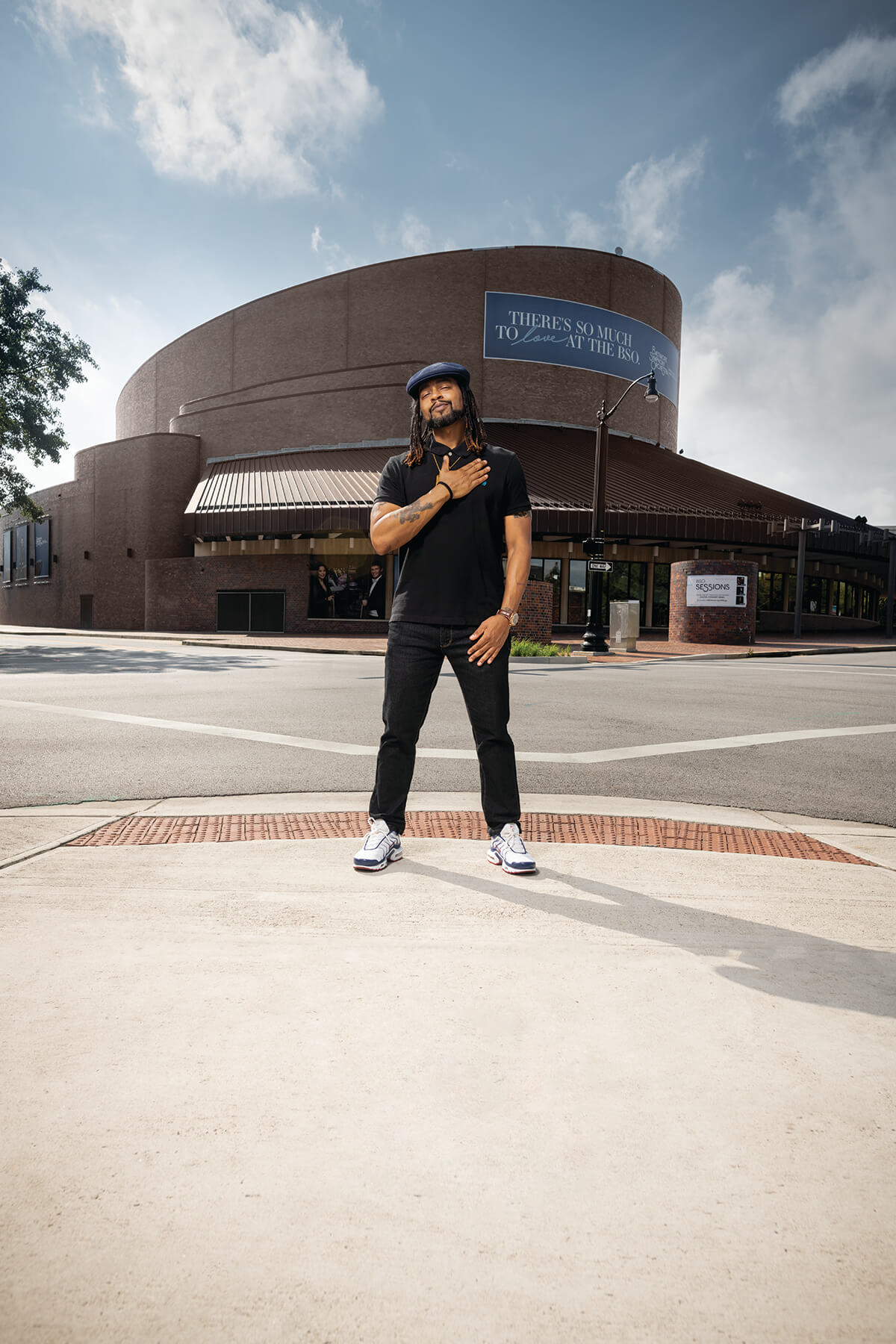Arts & Culture
Wordsmith Discusses New Role as Artistic Partner With the BSO
The musician reimagines classical standards and advises on more inclusive programming.

Over the past decade, the Baltimore Symphony Orchestra has strived to break down cultural barriers, defy the limitations of genre, and free classical music from its perceived ivory tower. Now, they’re taking that mission one step further with the two-year appointment of Anthony Parker—aka the rapper Wordsmith—as an official Artistic Partner, where he’ll reimagine classical standards and advise the BSO on more inclusive programming. We caught up with Wordsmith to discuss his new role.
You’re a rapper. How did you even get involved with the BSO?
A couple years ago, I ran into [BSO vice president] Tonya Robles at Light City. She said, “I don’t know if this is up your alley, but would you be interested in working with the orchestra—doing some new interpretations of old music, writing some new material?” I said, “Yeah, this is on my bucket list!” Plenty of times I walked past the Meyerhoff from my house [in West Baltimore] and said, “I’m going to be there some day, somehow. I don’t know how, but I’m going to be there.” The first project I worked on was [Saint-Saën’s] “Carnival of the Animals.” I used the original text as a guide and updated it for more modern times. It didn’t sound so old anymore.
From there, you did a remix of Beethoven’s “Ode to Joy” and hosted the BSO’s annual gala. And then they offered you this Artistic Partner role.
To be honest with you, I didn’t just want to take a position with a name and a title, where I was just there. It was about the BSO being held accountable. It was about me being held accountable as well. I expressed to them that as Artistic Partner, I wanted to create diversity-driven programs that can bring more of the Black community, the Latino community, the indigenous community into the BSO, because when I was on the outside—and I know a lot of minorities feel this way—you look at it and go, “That’s not a place for me. I don’t feel welcome there.” I also told them it had to be more than a one-year deal. Because some of the programs we want to work on are going to take longer.
You seem particularly keen on expanding hip-hop’s boundaries, as well.
Music is universal. I’ve learned that through my concerts and workshops and international travels. I go to different countries and sometimes they can’t speak English, but music speaks for you. The basis of hip-hop is storytelling. And classical music tells the greatest stories, just through instrumentation. You can literally close your eyes and it will take you to so many different places. There’s a stigma that only one group of people should be playing and listening to classical music. And that’s just so far from the truth. My words are just enhancing it.
What would you say to young people or people of color who feel like the BSO is not for them?
I would tell them that we have a brand new [Black] assistant conductor, Jonathan Rush. We have me coming in as Artistic Partner. We’re going to be doing programs that are relatable to every community out here in the city. I’m doing a retelling of [Stravinsky’s] “A Soldier’s Tale,” but I’m telling it from the perspective of a Black soldier during Vietnam and the Civil Rights movement. My job is to make it more relatable. I want to be an asset to not just the BSO but to my community. I just want to be a bridge.